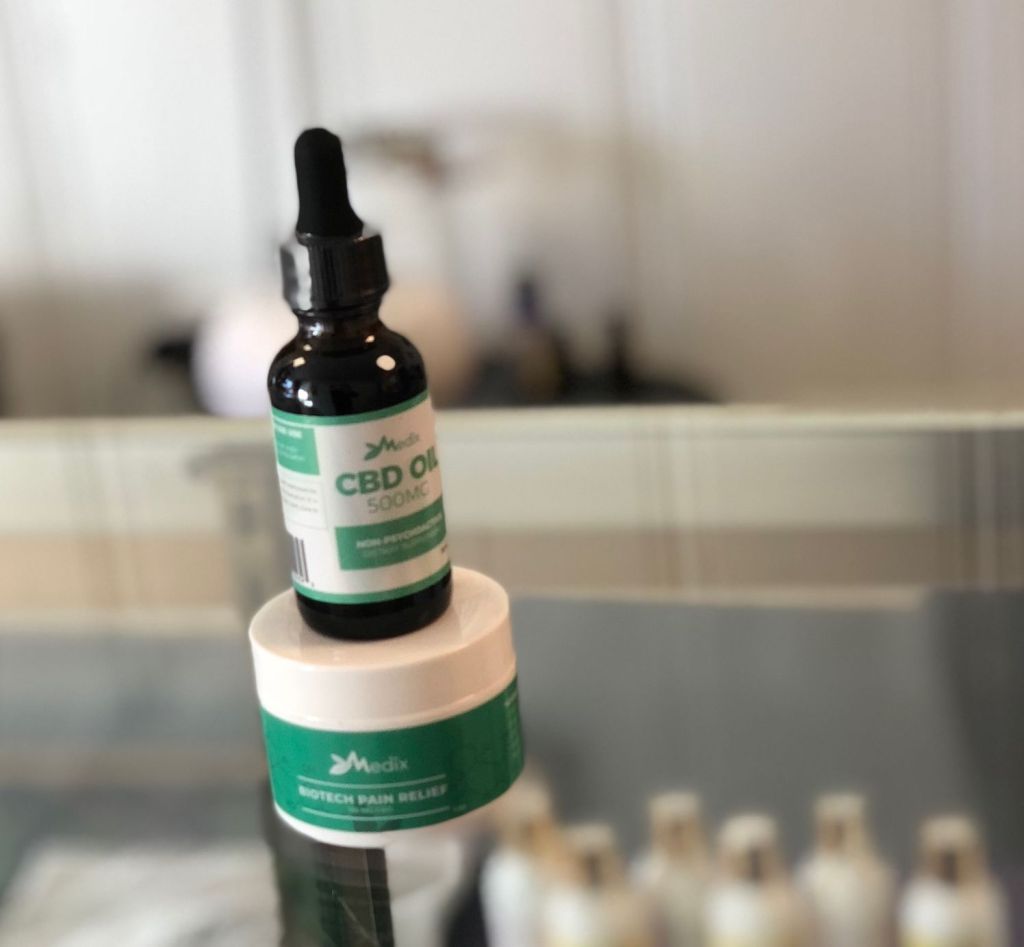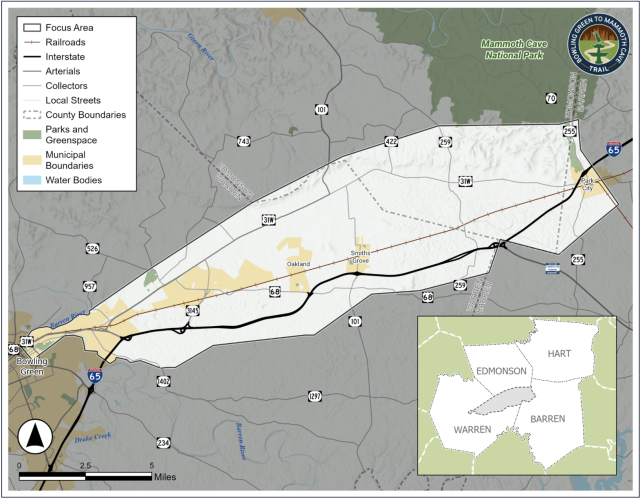Kentucky’s hemp revolution multiplying
Published 9:30 pm Friday, February 1, 2019

- Bowling Green’s hemp-only store, First and Last CBD, offers a selection of oils, creams and edibles. Medix CBD products, pictured above at the shop, contain Kentucky-grown hemp.
It’s popping up in skin creams, smoothies and medicine cabinets, and the world’s newest superfood is about to become even more popular.
In December, the U.S. government removed industrial hemp from the list of controlled substances through the passage of the 2018 farm bill. Mere moments after the pen hit the paper, Kentucky Department of Agriculture Commissioner Ryan Quarles submitted the Bluegrass’ plan for cultivating hemp.
“The passage of the 2018 farm bill is a game changer for the industrial hemp movement,” Quarles said. “It’s an opportunity for Kentucky to be first in something instead of last. … I want Kentucky to be the epicenter for hemp.”
At the forefront of this expansion is GenCanna, Kentucky’s largest producer of hemp. From a few family farms, the Winchester-based operation helped steer hemp’s future through Kentucky’s Industrial Hemp Research Pilot Program.
Last year, they grew 1,000 acres of hemp. In 2019, they’re approved to grow 10,000 acres of hemp.
“We know that a 10x expansion is aggressive, but there’s nothing that we know now that says we can’t do it,” said Steve Bevan, president of GenCanna and secretary of the U.S. Hemp Roundtable. “It’s important for us to anchor this in Kentucky.”
The easiest part is finding farmers, which GenCanna sources through the certified farming network. Farmers educate them on the land and local ecosystems, and GenCanna educates them on the plant and how the crop grows. Since farmers tend to be innovative, learn quickly, and share what they know, the ability to succeed quickly is much easier than four years ago, according to Chris Stubbs, the chief of science at GenCanna.
“It’s an incredible learning process,” Stubbs said. “We’ve been successful in helping farmers farm, and we’ve filled the void that tobacco has left.”
After harvesting hemp, the challenge is processing. Anyone can plant more plants, but drying and processing the plants “takes some unique efforts to get there and commercialize this in a way that’s reasonable and beneficial for everyone involved,” Stubbs said.
It also takes special equipment. That’s why GenCanna is opening a new, $40 million processing plant in Paducah, and why it’s considering putting a facility in Warren County – though that’s still up for discussion, according to Bevan.
GenCanna’s rapid growth mirrors the state’s climb as an industrial hemp leader. In 2014, 33 acres of hemp were planted as part of the state’s pilot program. In 2018, farmers planted about 6,700 acres of hemp. This year, KDA approved the growth of up to about 42,000 acres by 1,035 farmers – up from 200 farmers in 2018.
Under the farm bill, states will provide plans to the U.S. Department of Agriculture with a record of where hemp is being produced, and procedures for ensuring hemp meets the legal standards, disposing of unlawful hemp plants (greater than 0.3% tetrahydrocannabinol – THC – content) and handling violations.
As the vice president of the National Association of State Departments of Agriculture, Quarles wants to create a hemp working group to propose policy changes that would encourage states to harmonize their laws and testing protocols across the nation.
And one day, he hopes hemp will be treated no differently than corn.
“We want to make sure that Kentucky maintains its competitive edge and becomes the epicenter for farming and processing,” Quarles said. “If people are going to buy industrial hemp, why not make it Kentucky Proud?”
GenCanna, as well as Kentucky, has barely begun to tap into the market. In 2017, there were $17 million of Kentucky-grown hemp products sold. The data for 2018 is still being tabulated, but Quarles estimates $50 million or higher.
“We’re trying to manage expectations for 2019, as we have an influx of brand new participants that are learning to get off the ground,” Quarles said. “Eventually, the program will become even more streamlined, as we learn from the growing pains of a crop that has literally not been cultivated for over two generations in our state.”
Hemp, or cannabis sativa, is harvested for its stalk, leaves and flower, and can be transformed into paper, fiber, grain and oil. It has been marketed as a cure-all for many ailments, including anxiety, arthritis and epilepsy – last year, the FDA approved the hemp-containing drug, Epidiolex, to prevent seizures.
Hemp contains cannabidiol, which is extracted from the plant’s oil glands, called trichromes. “Trichromes are essentially the factory that produces the primary and secondary metabolites,” Stubbs said. “What cannabinoids are produced are determined by a series of genes.”
Since humans possess endcannabinoids systems, the cannabinoids interact with our physiology.
GenCanna primarily produces hemp for CBD oil, but that could change soon. Stubbs hopes that research and development and partnerships with universities and industry will reduce the capital costs associated with developing a wider range of hemp-based products.
At present, that potential seems unlimited – research firm Brightfield Group estimated the CBD market will be worth more than $20 billion by 2022.
“The old adage is hemp is going to save the world,” Stubbs said, while mentioning that some people claim the plant has 25,000 uses. “The reality is that there’s a lot of work to take advantage of all of those uses.”
But’s it’s not a mystical plant, according to Bevan.
It just does a lot.
“We’re just starting to see the tip of the iceberg,” Stubbs said. “It’ll be a few years before we see how this really unfolds.”
In the near future, Bevan hopes to expand to the other end of the Bluegrass – including the Barren River Region – and create a greater regional impact, potentially expanding to neighboring states afterward.
“The best place for expansion is right next door,” he said.
•••
In November, Amanda Briggs opened up First and Last CBD, a downtown Bowling Green-adjacent store flushed with CBD products, sunlight and positive messages.
“It’s only good vibes here,” Briggs said, because she wants people to “get high off of feeling good.”
As someone with Crohn’s disease, Briggs discovered that CBD-oil helped alleviate her symptoms better than her prescribed medication, which warned about the possible side effect of leukemia.
But she doesn’t think CBD is medicine. “It’s like a vitamin,” she said. “It centered me.”
Now that hemp has been legalized, Briggs hopes that business will increase. She grew up in a religious household and was taught to hate marijuana and it’s non-high-inducing cousin, hemp. Some of her relatives still won’t speak to her because of her new gig.
“My mom thought it was dope,” she said, though her mother – who is disabled – eventually converted, and now uses CBD oil to treat her pain.
Briggs wants more from the farm bill than new business, though. In particular, she wants more Kentucky-based oils, creams and edibles to select from.
Only one of her lines, Medix CBD, contains hemp grown in Kentucky – and it’s processed in Florida.






